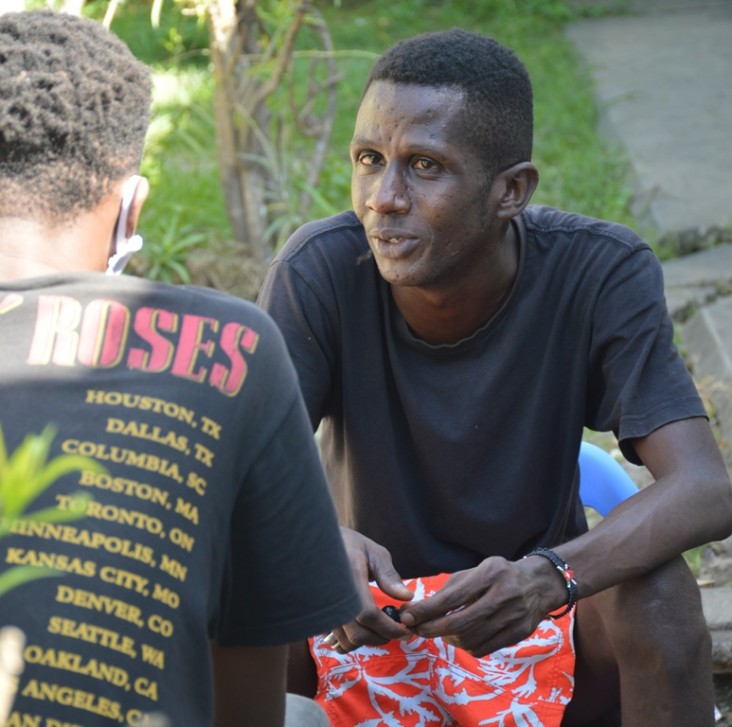Speeches Shim

“My job is to counsel those who have given up and remind them that HIV is not a death sentence,” Wilson Lore.
Lore, as he prefers to be called, was born HIV-positive. After his mother’s death, his older sister - ill of the same disease - raised him until she too died. She left him under the care of other siblings. Lore fell seriously ill at the age of 10 and tested positive for HIV. But his family was reluctant to inform him about his status, fearing the stigma he would be subjected to in school. After his schoolmates found his antiretroviral medication, they labeled him “the HIV boy.” “I almost quit school,” says Lore.
Lore was introduced to the United States Government’s Youth Zone program, a psychosocial support platform for young people living with HIV. He learned about adherence to treatment, disclosure, stigma, and discrimination facing those infected with the disease and how to deal with these challenges.
“The personalized support from the Facility Youth Zone has improved retention and treatment of adolescents and young people living with HIV. It has also reduced stigma because the youths share experiences,” says Daniel Mudibo, a Community Outreach Officer working for USAID’s Afya Pwani (health in the coastal region) project, which supports the program.
After overcoming stigmatization, Lore counseled newly diagnosed adolescents and young people whenever he went for his clinical visits. To complement these efforts, the Youth Zone initiative trained him and other peer volunteers on life skills essential to their work, including interpersonal communication, problem-solving, and decision-making skills. Now 24 years old, Lore is a source of inspiration to his peers. He has mentored nearly 50 adolescents and young people living with HIV. He inspires and reminds them that being positive does not mean the end of life. “
The counseling sessions help my fellow youths living with HIV build confidence, resilience, promote a sense of belonging and ensure that they adhere to medication,” he says. “Their viral load is low, and they are living a normal life.”
Through his volunteer efforts, Lore also organizes events for the Operation Triple Zero initiative, a priority program for the Government of Kenya and United States President’s Emergency Plan for AIDS Relief (PEPFAR). It nurtures adolescents and young people living with HIV to be part of the solution to their health. Through the Youth Zone program, more than 400 adolescents and young people living with HIV have been empowered to take charge of their health, take control of their decisions, and receive support from fellow peers.
The initiative is made possible by the American people through PEPFAR within USAID’s Afya Pwani. Lore represents thousands of HIV-positive youth mentors whose acts of courage are contributing to the dream of Kenya’s future generations being free of HIV.

Comment
Make a general inquiry or suggest an improvement.